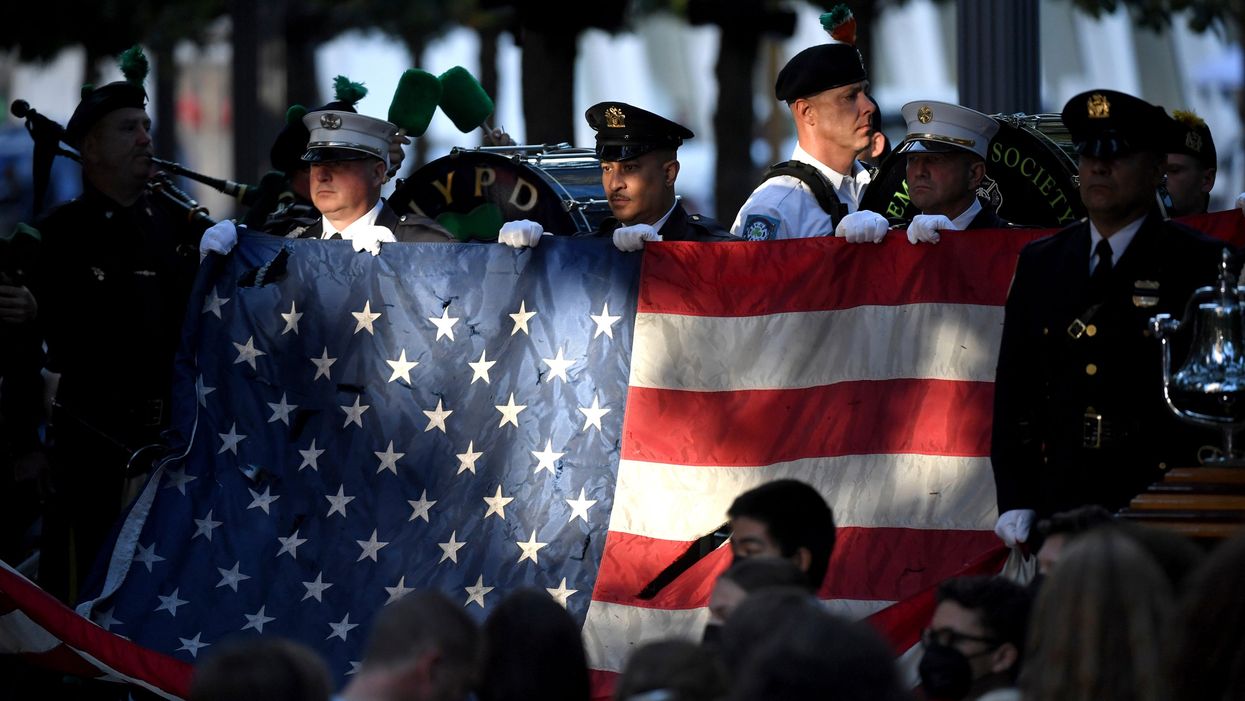News
Breanna Robinson
Sep 11, 2021
On September 11, 2001, hijackers from Osama bin Laden’s al-Qaeda terror network rammed four commercial aircraft into the World Trade Center (WTC), the Pentagon, and a Pennsylvania field, killing almost 3,000 people.
Despite the devastating death toll, thousands of people managed to evacuate the damaged buildings. Some walked up flights of smoke-filled stairs in the twin buildings of the World Trade Center, or surged out of a blazing Pentagon. At Ground Zero, some people were frightened by an extraterrestrial dust cloud. Others fought their way out of the suffocating darkness.
First responders, witnesses and those who worked to help others in the aftermath of the attacks still suffer scars and the weight of unanswered questions 20 years later. Some people are unsure about their place in a disaster that has resulted in many lives lost.
As the US marks the 20th anniversary of the attacks, indy100 shares the accounts of seven people – including first responders, survivors and bystanders – about what they remember from that tragic day.
‘It felt like a war zone’
First responder Oren Barzilay, President of FDNY EMS Local 2507
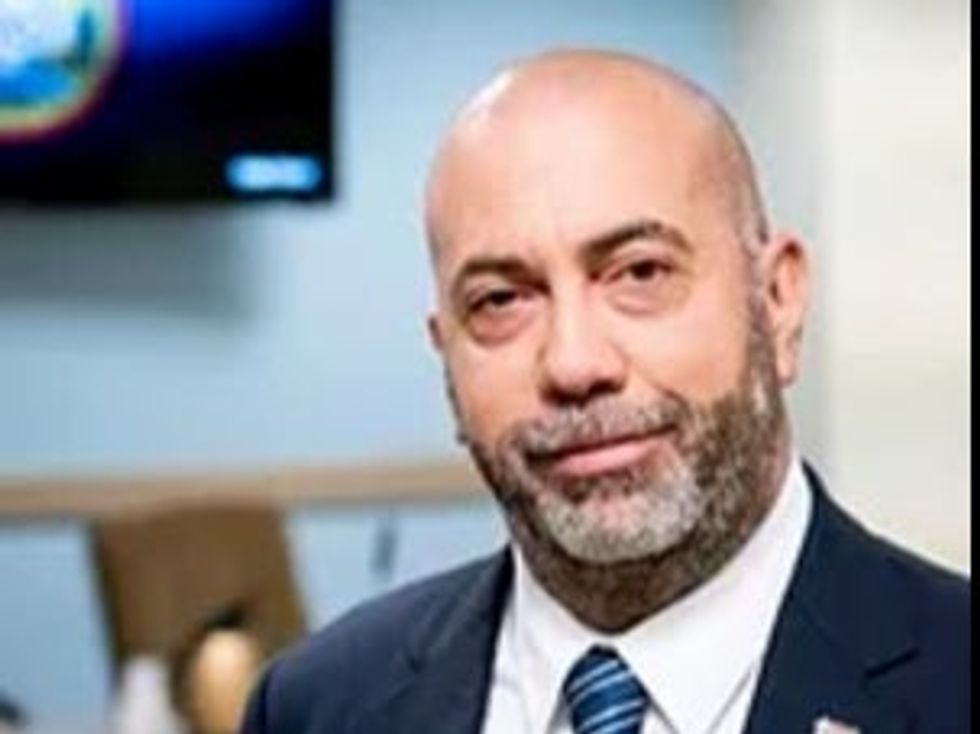
As a first responder to the World Trade Center attacks and subsequent recovery peration, Oren Barzilay was working at the FDNY (Fire Department of New York) EMS Command Dispatch Center, a mile away in Downtown Brooklyn.
“When my shift ended that night, we went down to the site to see how we could help,” he said.
“I remember the pile clearly in my head. The air was filled with dust particles, and hundreds of first responders were all around, working to find survivors.
“It felt like a war zone.”
He also noted that the days and weeks that passed following the “destruction” are “engraved in his mind.”
‘It was emotionally and physically taxing’
Richard Alles, retired FDNY chief officer
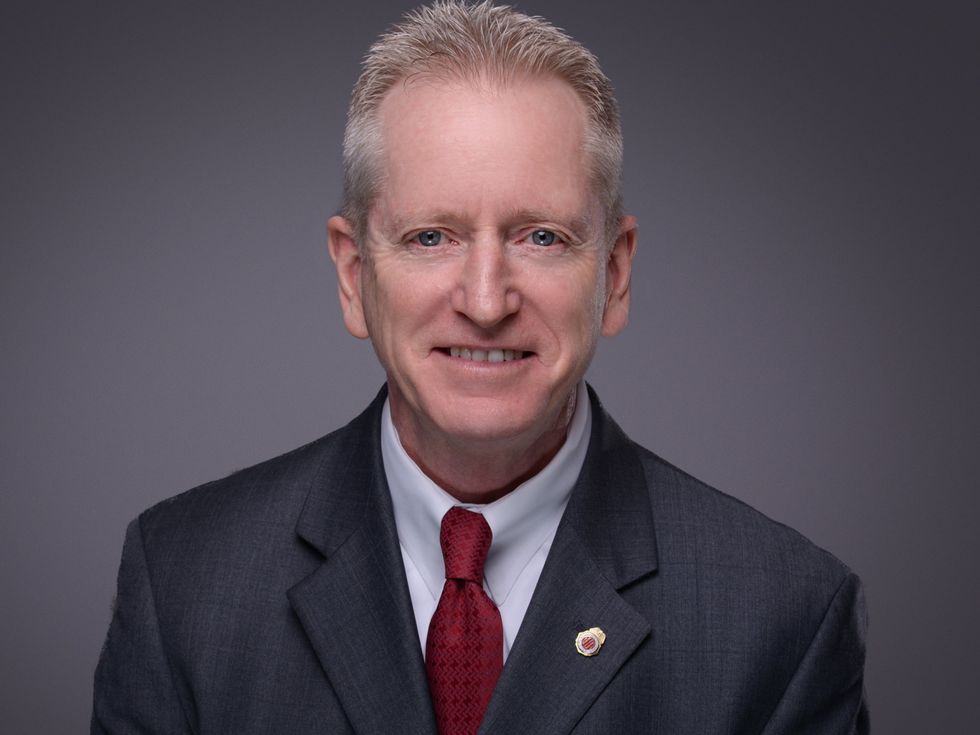
Retired FDNY chief officer Richard Alles arrived at the World Trade Center as part of a Brooklyn staffing unit, twenty minutes after the second tower collapsed on September 11, 2001. He held the position of Battalion Chief at the time. For the first two weeks of the operation, he was in charge of supervising search and rescue units, [which] was “limited until the night.”
“It was physically and emotionally taxing,” he said about the day.
After the attacks, the FDNY implemented a rotation system for its members, and throughout his scheduled rotation, he conducted supervisory tasks in various assignments.
Alles said that he, alongside friends and colleagues, will come together to honor those they lost (Alles said he lost several close friends), including those suffering from cancers caused by the debris and carcinogens. This time of the year is difficult, but Alles said that he has a loving family and a great support system.
And although he doesn't really regard himself as a hero for his work (as the “true heroes” have died, he says), his efforts helping to gain passage for the James Zadroga 9/11 Health & Compensation Act are noble. The act is an initiative to help thousands of 9/11 responders and survivors, who are still unwell.
‘I’ve often looked back and thought… why did I get out and other people didn’t?’
Janice Brooks, a British woman who escaped the World Trade Center
British woman Janice Brooks, then aged 41, had been in New York for just under three weeks when she was caught up in the chaos that unfolded on September 11, 2001.
At 7.30am on the day of the attacks, she arrived early at her 84th floor office in the South Tower where she worked as executive assistant to the chief executive of Euro Brokers, a financial brokerage firm.
She recalls a “dull thud” that sent paperwork swirling, but was not “unduly concerned”. She and colleagues were unaware that American Airlines Flight 11 had hit the North Tower. Someone on her floor suddenly screamed for people to evacuate and a “casual” Ms Brooks decide to inform her former London boss before leaving. His concerned reaction over the phone left her alarmed: “F****** hell, Janice. A plane’s gone into the building. Get the f*** out of there.”
But as she tried to evacuate, an announcement told workers to return to their offices and Ms Brooks got caught with others in a corridor on about the 78th floor as United Airlines Flight 175 crashed into the south tower.
Ms Brooks recalled a “really, really loud thud”, flickering lights, the ceiling come down with bits of metal and wiring and people being thrown to the floor. Nearby there was “one of those horror movie screams” from an injured woman that “went on forever”.
Her group cleared debris, helping to rescue workers covered in cuts and glass, but discovered the stairs they had come up were gone and all that could be seen was “darkness and flames”. Thankfully, a door was found to another flight of stairs and the battered group “coughing and crying” climbed down through the dust, glass and running water.
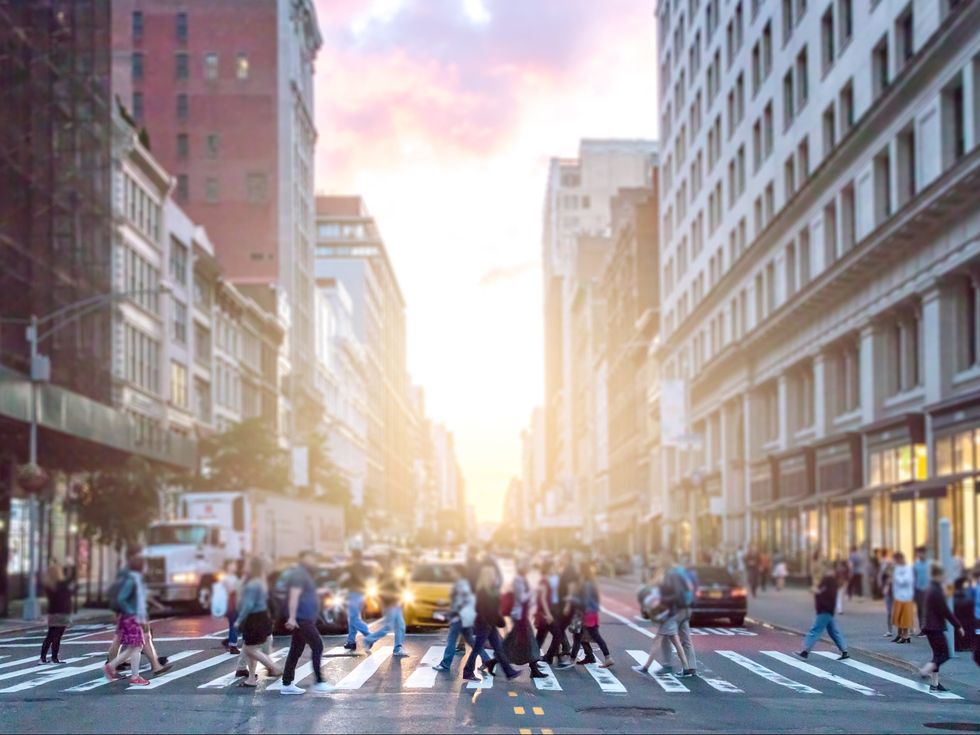
Ms Brooks remembers a scream “building up inside me” after noticing blood from the walking wounded on her shirt and “oozing” through her toes on the floor.
After finally exiting the building she eventually looked back: “Where our floor should have been there was a big gaping hole and I could see flames”.
It was 9.43am and within the next 46 minutes both towers had collapsed.
Ms Brooks was back at her Battery Park City apartment just 10 minutes away and remembers the windows turning “black” and the building “trembling” as the North Tower fell.
“I sat there and rocked backwards and forwards and I was crying and I thought I was going to die. The building’s going to fall for sure and I’m going to die and I’m by myself,” she said.
In the hours that followed, Ms Brooks spoke on the phone to colleagues and friends and waded through “thigh high” debris to escape from her apartment building into the “utter silence” of lower Manhattan. “All the trees were white, I looked across the road, there was cars tumbled on top of each other and strewn across the highway,” she said.
Ms Brooks, 61, who now lives in the UK, said counselling helped her process the events but she still finds it difficult to talk about it.
“I’m just a very ordinary girl… all I did that day was go to work, all any of us did was go to work, and if something like that can happen to me it can happen to anybody,” she said.
“I can close my eyes and be back there in an instant. The sights, the sounds, the smell… oh my god, the smell that stayed in your throat for months afterwards.”
She added: “Survivor’s guilt brings you to your knees… and I’ve often looked back and thought… why did I get out and other people didn’t, and I can’t answer that,” she said.
She now supports Since 9/11, a UK charity which runs educational programmes for children to learn about the history and legacy of the attacks and encourages them to reject violence and extremism, giving talks about her experience.
‘I was meant to visit the Twin Towers but overslept’
Charlotte Mather, a Hypno Coach who was a British tourist in New York
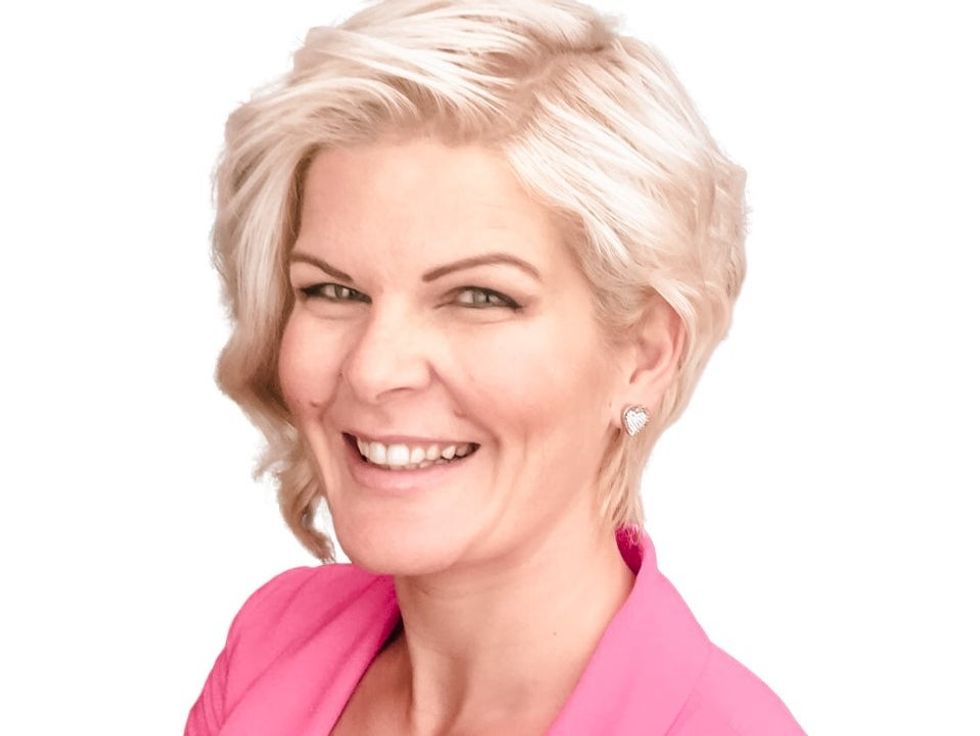
Charlotte Mather was a 21-year-old British Tourist on the day of the attacks and had arrived in New York the day before. She and her friend were supposed to visit the Twin Towers in the morning, but they had overslept.
“I was aged just 21-years-old and arrived the night before to start my two-week holiday with my best friend. We had our itinerary planned, and we were due to go for a tour of the Twin Towers at 9:00 am. At 8: 45am, when the second plane hit, we were stood outside our hotel on West 23rd Street, around two miles away from the Towers, and I can tell you, two miles is nothing when an explosion like that happens,” Mather said.
The next day, she remembers it was “pure chaos”. She and her friend “can’t agree on the chain of events” because they were shocked.
“I remember dust, screaming, empty streets, other than a procession of military and service vehicles. We walked up to Central Park, up an empty 5th Avenue, to get as far away as we could manage and lay on the grass while fighter jets roared over our heads. The phone lines were down, and my biggest concern at that point was that I couldn’t phone my mum and let her know that I was alright.”
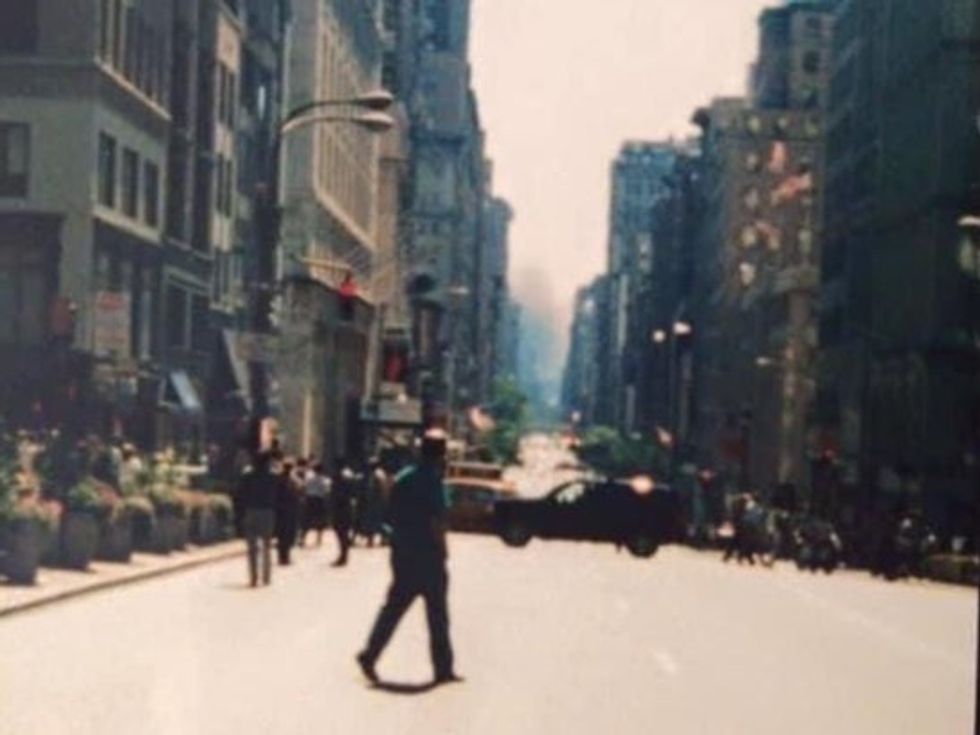
Mather said that it took nine hours before she actually had the chance to speak to her mom. Additionally, she and her friend ended up staying in the city for another two nights because the island was shut down, and no one was let out.
“We didn’t have a hotel room as we only planned a one-night stay and then get the train to see a friend in Massachusetts. The hotel (kindly!) let us sleep on the floor for FULL PRICE!” she added.
She further notes that she and her friend were “the lucky ones” because professionals such as “businessmen in suits” were sleeping in the doorways because hotels were not accepting everyone.
“I can talk about my experience openly now, but it took about six years before I felt able to vocalise it, and I stayed away from any media about the events of 9/11.”
But she adds: “I look at my life and what I’ve achieved, the people I have helped, my beautiful family, and after healing my core wounds of self-worth, I understand...I have a mission to fulfil.”
‘Our military families have walked a unique road over the past twenty years’
Lisa Hallett, wife to the late Chief John Hallett, who was killed in Afghanistan
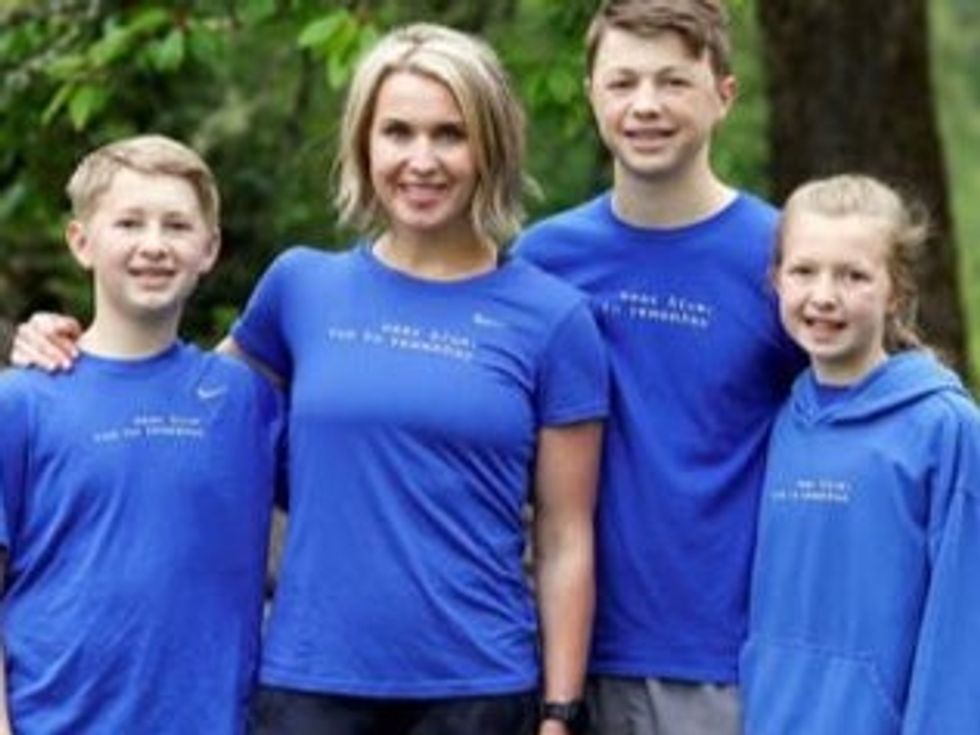
Lisa Hallett was actually in San Francisco, California, at the American Academy of Ophthalmology at the time of the attacks. Her husband, the late Chief John Hallett, was in Infantry Officer Basic Course (IOBC) at Fort Benning, Georgia, and had graduated from the United States Military Academy in June 2001.
“John had graduated from the United States Military Academy, beginning his military career. He was passionate about protecting his country and leading men,” Hallett said.
Then, three months after the attack, a close friend lost her brother to the tragedy.
“That personal connection would only grow as our military family gave their life, limb, and mind in the two decades of combat operations that would follow that tragic day,” she said.
John was deployed to Afghanistan but, in August 2009, he was one of four soldiers who was killed in action when the Stryker Brigade Combat Team were struck by an explosive device in the southern part of the country.
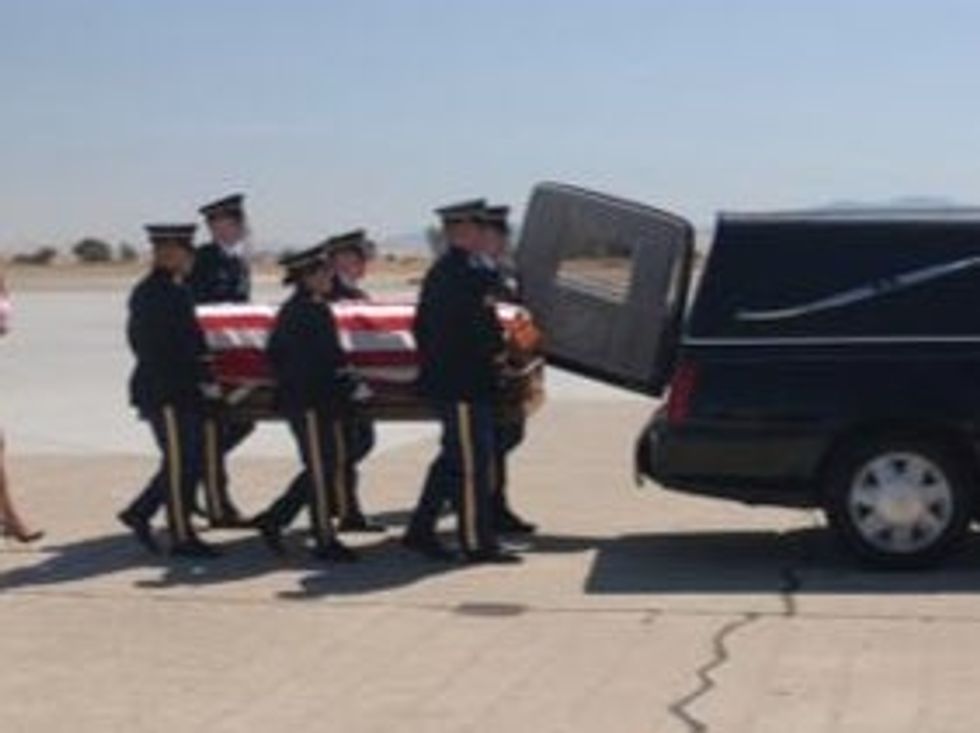
Lisa and John had three children, including a newborn whom John never met.
Lisa said she still is processing how to feel after Afghanistan is now under the Taliban.
“September 11 was a catalyst for John and my peers to face entire careers of combat operations... missed birthdays, graduations, and everything in between,” she said.
“Our military families have walked a unique road over the past twenty years. Our blood and love are sown into the soil of Afghanistan. Our country called, and our servicemen and women answered. They had a job, and they did it well... at great cost to themselves and their families.”
On the support available, Lisa said that an organization such as the Folded Flag Foundation has been a very helpful “in supporting families like mine, despite the tragic loss that we have had to overcome”.
‘It’s increasingly important that we share first-hand personal accounts’
Paul Grattan J, a sergeant with the New York City Police Department and managing director of a public safety training and consulting firm
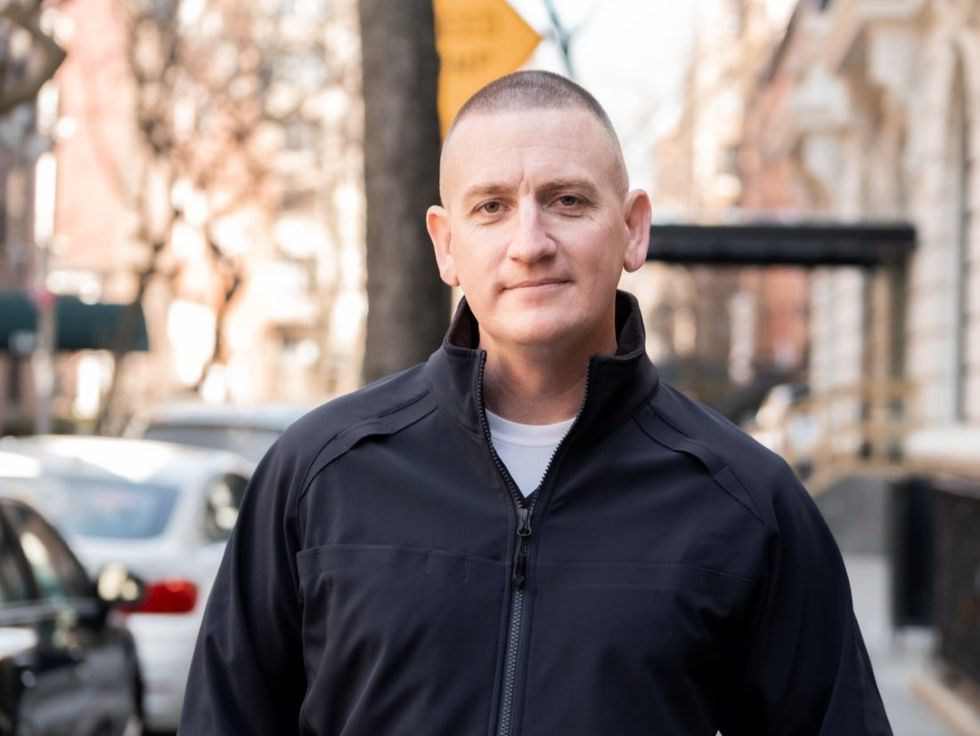
Paul Gratton Jr was in the New York City Police Academy as a recruit at the time, sworn in from July 2001. He was only a couple of months into what was supposed to be a six-month training period when the attacks took place.
“I was among 1,800 recruits in the police academy at the time. That morning, I reported to work at 0700 – me and the 30 or so officers in my company were actually reporting off-site that week – to a classroom in downtown Brooklyn where we're learning about the court system and court testimony,” Gratton Jr said.
When the first plane struck the World Trade Center, Gratton Jr and the team were in a courtroom in downtown Brooklyn and were rushed back to the classroom.
“We were rushed back to our classroom, but I don’t think any of us (or our instructors) had a sense of what was going on. Then the second plane struck, and it became apparent we were under attack.”
It was then that Gratton Jr said they were immediately prepared for mobilization.
“We were immediately prepared for mobilization and brought to the nearest NYPD precinct, right across the street from the classroom building – the 84th Precinct. We were each given assignments at the Brooklyn side of the Manhattan Bridge, helping evacuate people from lower Manhattan.”
From that day, he noted that he remembered how people looked.
“I distinctly remember many things, including how everyone looked covered in dust and how panicked they were. I also remember the smoke, working at the World Trade Center site in the days that followed.”
Moreover, he’s aware that his career was impacted in the long run and said: “I don’t know we would ever have the same level of vigilance if not for the attacks. It added an entire additional scope of what we do in public safety.”
On the topic of the greatest challenges moving forward, Gratton Jr wants to ensure future generations understand the events that transpired.
“Twenty years later, many of the first responders, for example, have retired. Many others have also suffered from 9/11-related illnesses borne from their work at and around Ground Zero. Very shortly, we’ll have new recruits entering the NYPD Police Academy who were not even born when 9/11 occurred.
“It’s increasingly important that we share first-hand personal accounts, so future generations benefit from the lessons we learned.”
‘The cost to the survivors is often overlooked’
Jacqueline Shaulis, founder of Awesome Enterprises LLC, who works with people affected by 9/11
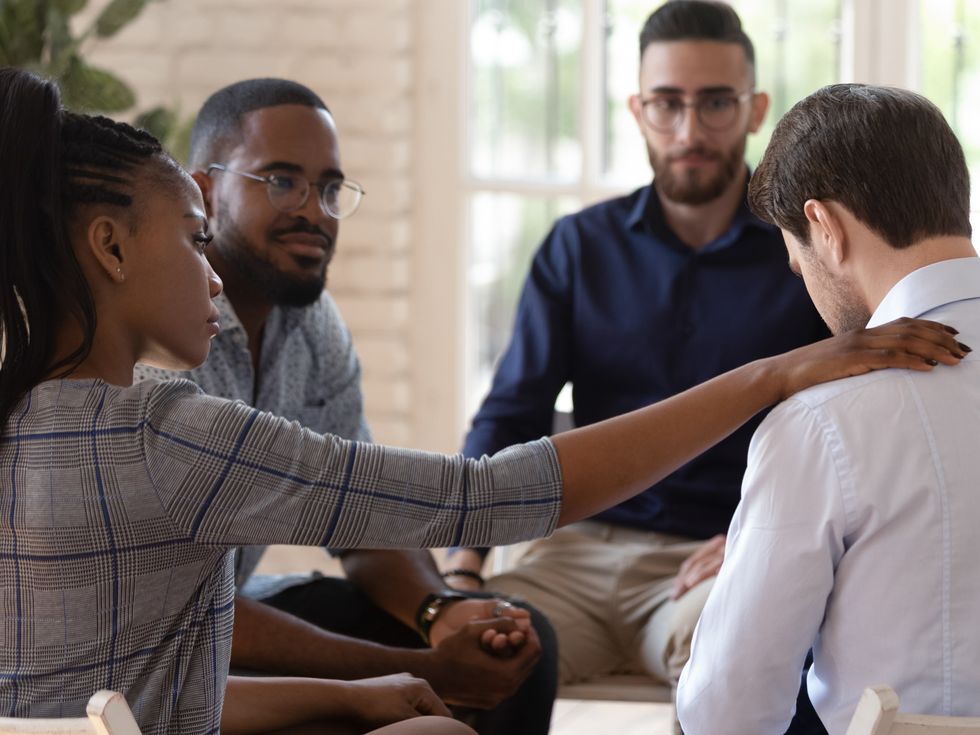
Jacqueline Shaulis was a student at a college in Texas when she saw the second plane crash into the Twin Towers.
“I stood watching for a moment, wondering why there was a WWII film playing on several of the TVs on the way to class. It just didn’t register that this was happening now, in our country,” Shaulis said.
“Once I got to class, several people mentioned that New York was attacked, but none of us knew what to do with that information. Over the following days and weeks, as information came out, it still seemed distant. Yes, our nation was under fire, but I couldn’t connect it to regular people who still have to work, eat, and go to school. It somehow seemed isolated, as if it was happening in some lone pocket of the nation.”
Some years later, Shaulis moved to New York City to work for a company affected that day.
“I moved to NYC to work for a company that was directly affected when their building was destroyed from the debris, and several employees died. I worked for some of those people fleeing for their life. I sat next to people whose children, spouses, friends had died directly and indirectly from 9/11.”
Shaulis further noted that talking to people who were affected has made her understand the complexities of life and that she is forever shaped by the survivors.
“I can’t imagine the strength, fortitude, and surrender that’s needed to have to walk by the place you should have died but didn’t because the train was late. Or working in a now repaired area that still seems smoky with ash and despair.”
She said: “The cost to the survivors is often overlooked, but I’ve been forever shaped by them.”
Top 100
The Conversation (0)
